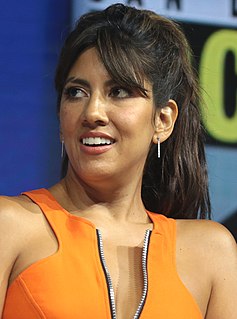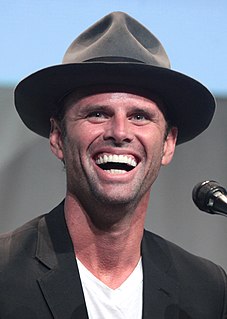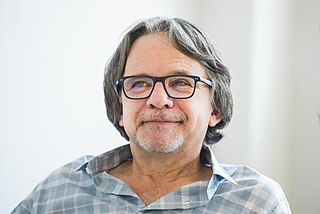A Quote by Kerry Washington
Human beings are complicated and flawed and unique, but we all have a story to tell. Gone are the days where our lead characters can only look like somebody else. Heroes look like all of us. We see ourselves in each others' stories. We see who we are. We see who we want to be. Sometimes we see who we don't want to be. And through that we have a greater understanding of ourselves and acceptance of each other.
Related Quotes
When you label somebody and put them in a box, then you put the lid on the box, and you just never look inside again. I think it's much more interesting for human beings to look at each other's stories and see each other. Really see each other and then see themselves through other people's stories. That's where you start to break down stereotypes.
I look upon ourselves as partners in all of this, and that each of us contributes and does what he can do best. And so I see not a top rung and a bottom rung - I see all this horizontally - and I see this as part of a matrix. And I see every human being as having a purpose, a destiny, if you like - the destiny that exists in each of us - and find ways and means to provide such opportunities for everyone.
What we see in the outer is but a reflection of the inner, because we surround ourselves with a picture of our own beliefs. In other words, we manifest in general what we seriously think and believe. So if we want to find out what our habitual thinking is like, we have but to look around us and ask ourselves what we really see.
Sure, kids want to read whatever is the hot book, and of course they want to read fantasy and any kind of speculative fiction, but they also like to read stories with kids that look just like them, that have the same problems as them. And I've noticed that what they particularly want to see is to see those characters prevail. So they don't want sanitized situations. They want stories to be raw, they want them to be gritty, but they also do want to see the hope at the end of the story.
We can carry the burden of hurt throughout our lives. We can make the hurt that we have experienced the defining aspect of our stories of ourselves. That means that somebody else gets to say who we are, somebody else gets to decide how we feel, and somebody else gets to decide how we see the world. Forgiveness not only frees us from the burden of someone else's opinion of us, but it allows us the opportunity to really write a story of ourselves that we can love, enjoy, relish, and live into.
We must begin looking at each other as brothers and sisters...and not walking brochures. We must see each other's strengths and encourage those strengths....We must see each others weaknesses and be patient with those weaknesses... sometimes even look beyond what we see as "weaknesses" and move on with compassion and love and respect. That takes true faith.
Human beings look separate because you see them walking about separately. But then we are so made that we can see only the present moment. If we could see the past, then of course it would look different. For there was a time when every man was part of his mother, and (earlier still) part of his father as well, and when they were part of his grandparents. If you could see humanity spread out in time, as God sees it, it would look like one single growing thing--rather like a very complicated tree. Every individual would appear connected with every other.
To see ourselves as others see us can be eye-opening. To see others as sharing a nature with ourselves is the merest decency. But it is from the far more difficult achievement of seeing ourselves amongst others, as a local example of the forms human life has locally taken, a case among cases, a world among worlds, that the largeness of mind, without which objectivity is self-congratulation and tolerance a sham, comes.



































